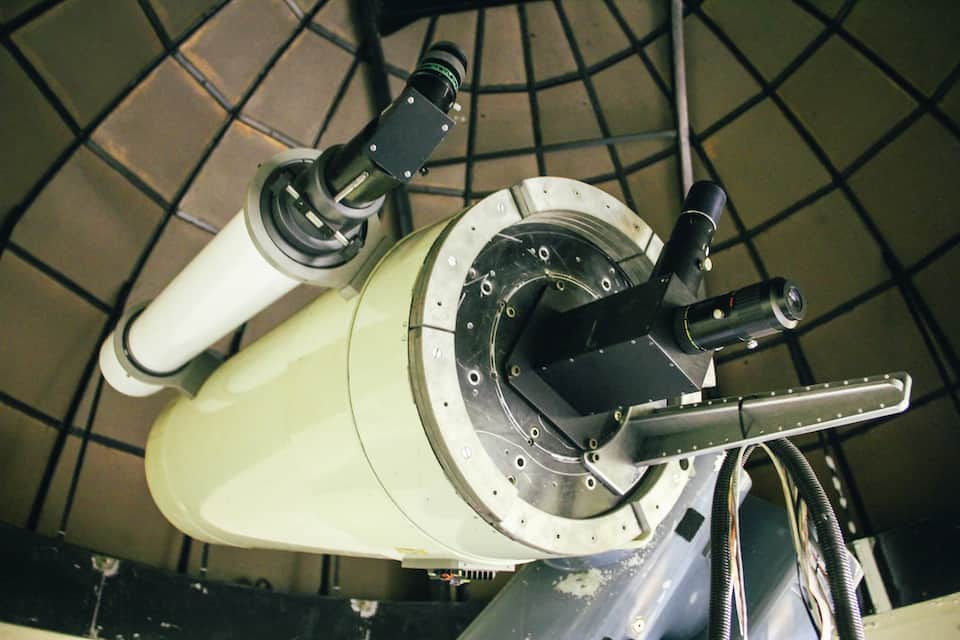With Canada welcoming approximately 25,000 Syrian refugees this year, U of T is full of exciting student initiatives to raise funds that will help landed refugees resettle. These initiatives include a special series of planetarium shows, organized by graduate students, Jielai Zhang and Pegah Salbi of the University of Toronto, Department of Astronomy and Astrophysics. The show is called “Astronomy’s Golden Age,” and the students intend to give 100 per cent of the proceeds from ticket sales to Red Cross Canada. The Varsity sat down with Zhang and Salbi to discuss the upcoming series.
The Varsity (TV): How did you come up with this idea?
Jielai Zhang and Pegah Salbi: We had been watching the news and heard about this huge problem about people being displaced both in Syria and to the neighbouring regions. There were all these problems about people not having enough food to eat or places to stay and everyone was helping to solve this issue. So we thought that we should do something to help them too. We thought that there is a planetarium in our department, and we should use astronomy to educate people and at the same time, they can do good too by supporting Syrian refugees. We set a target for raising $10,000 and we are already at 20 per cent [of that amount].
TV: When you first came up with this idea, how did the department respond?
Zhang and Salbi:We first pitched this idea to the graduate students, because we wanted to see what the response would be, and also because we couldn’t do all the shows and advertisement by ourselves. The response was phenomenal and very positive. All the people in the department also helped us to take care of the financial and administrative aspect.
TV: What is the show about?
Zhang and Salbi: We wanted to relate the show somehow to the cause that we’re trying to raise money for. One of our colleagues gave us an idea of representing Islamic contributions to astronomy so we can relate the show to Syria. There are a lot of connections between modern-day astronomy and Islamic astronomy. For example, a lot of the stars’ names are derived from Arabic. Astronomers present our planetarium shows, and they start from Earth and can travel to different planets, etc. The room is a black dome, and it can simulate the night sky.
TV: Why did you choose to support Red Cross Canada?
Zhang and Salbi: Red Cross has many programs designed to help refugees, and we were interested in two of them. One of them is focused on internally displaced Syrians as well as refugees in neighbouring countries, and the money directly goes to buying them food, emergency kits, medication, water, and basic survival needs. The other program helps Syrian refugees coming to Canada resettle smoothly and help them transition into the Canadian culture. The reason we picked Red Cross was because it is one of the most efficient organization[s] in terms of providing food, healthcare and shelter. Ninety-five per cent of the funds go directly to helping the Syrians. In total, we have scheduled 24 shows up to March. Each show holds 26 people.
TV: What was your favourite part about organizing the shows?
Zhang and Salbi: Our favourite part was the enthusiasm and positive energy we received from the department to pursue our idea. We have four people who [have] worked endlessly to formulate the presentation[…] We have been working on this project for the past two months, [and] about 30 people have been a part of this process.
TV: Do you have anything else you’d like to say to the readership?
Zhang and Salbi: As an endnote, we want to pose a challenge for the rest of the U of T community to support the Syrian refugees in any way possible. We, as astronomers, are teaching about astronomy so we want to see what other departments and faculties can do to support the refugees. By investing in their health and well-being, they will become resettled in Canada, and they will gain knowledge and may advance the field of science. The stars unite us all, and humanity should too.
The series will be held at the planetarium at 50 St George St. Tickets are $10; the first show is scheduled for January 22 and the second for January 28.


